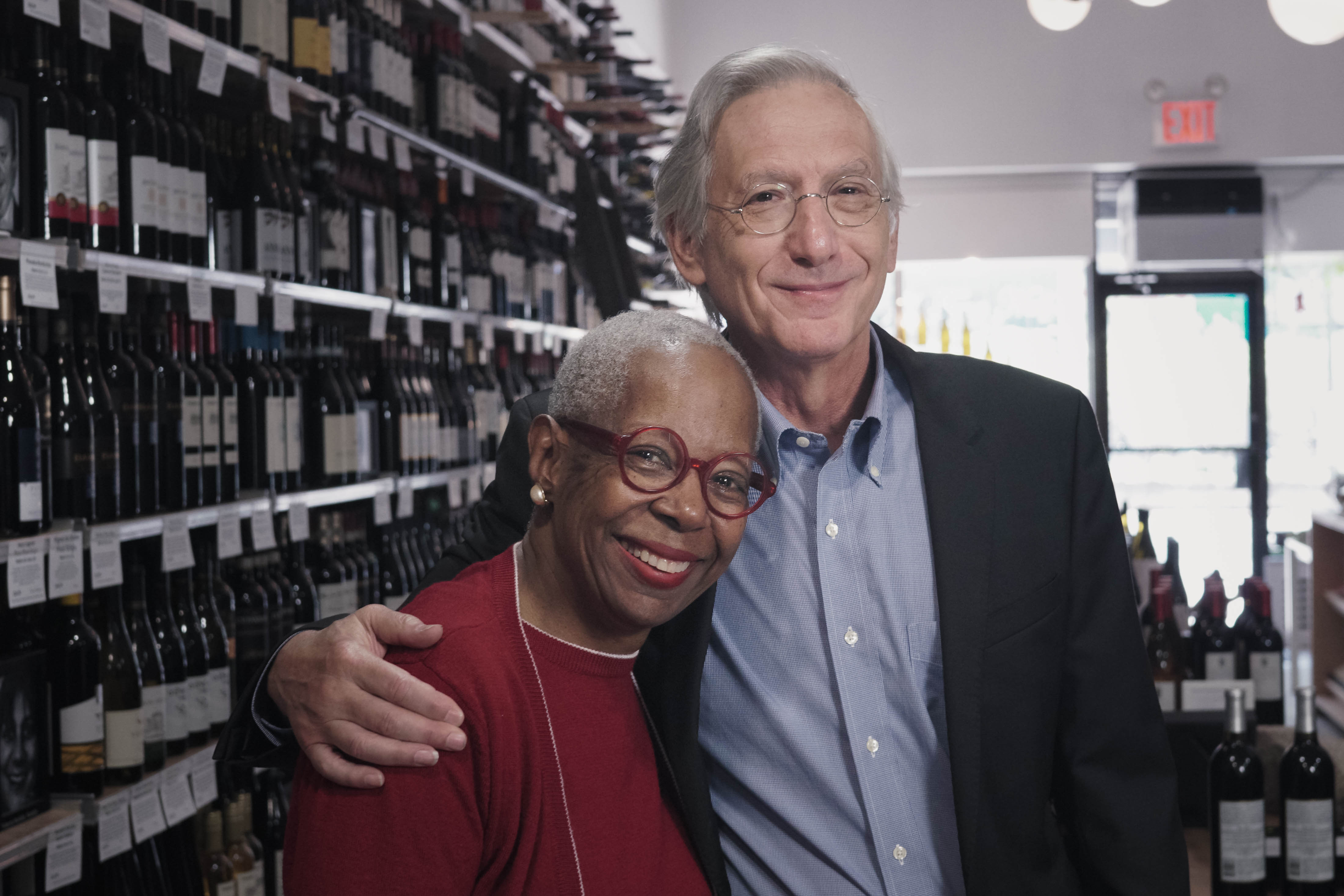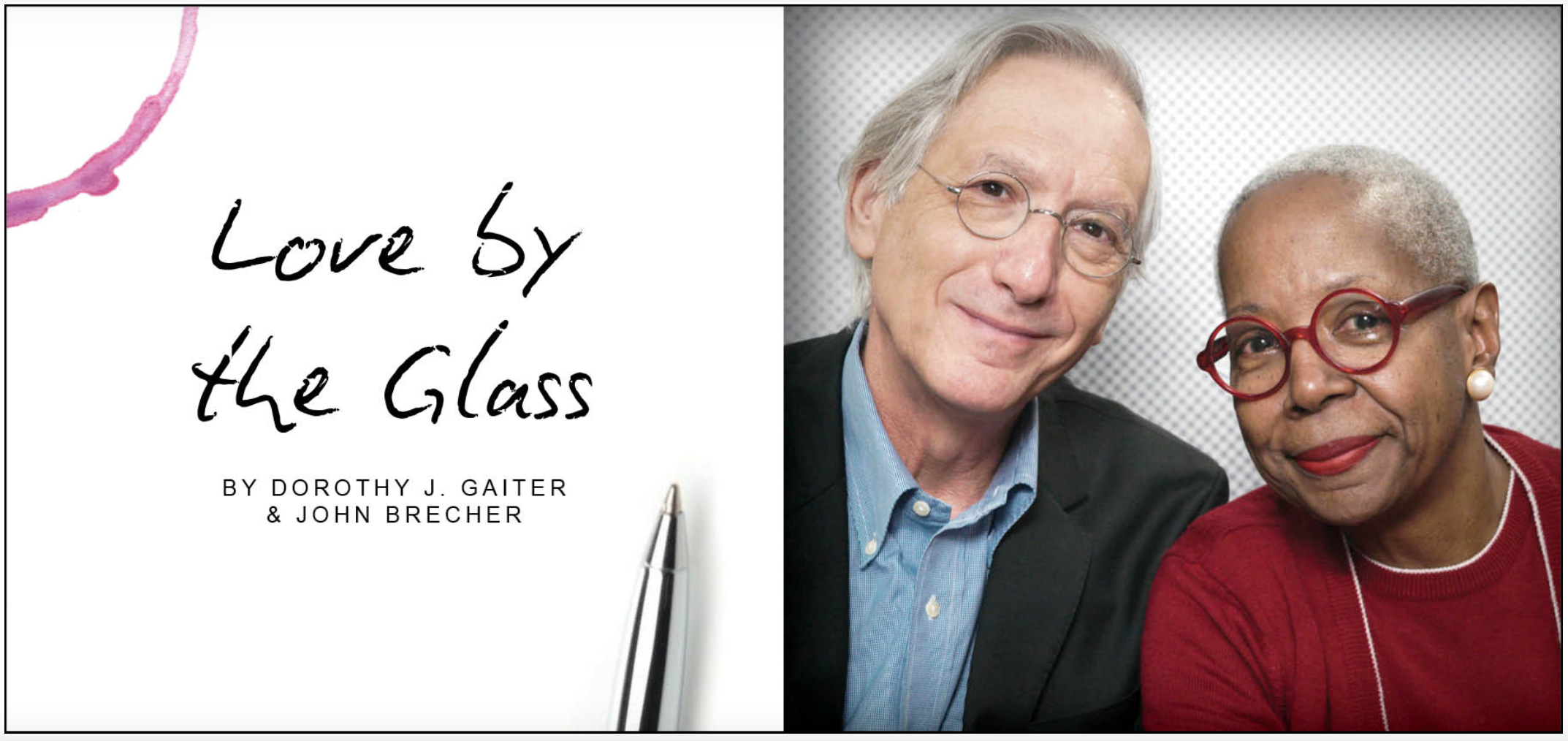
Our fathers have been gone for a long time now and it’s a cliché to say that they are still with us, but it’s true in so many ways. The values that they and our mothers instilled in us are in our cores and also in our daughters’. We were hard-wired by them. So stories of families have always interested us. Meeting a spouse or an offspring or sibling or parent is like holding a piece of a puzzle and trying to figure out the other pieces that make the whole; how this piece fits.
At wineries, parents and their offspring who have joined them in the business can have fraught relationships. And sometimes their disagreements are elemental: They are about grapes, nature. We have no way of proving this, but it seems to us that more generations are leaving their wineries, or the winemaking, to their daughters, and that creates a particular kind of dynamic. (We have two daughters, so we know something about this.)
When Michel Chapoutier reintroduced his wines recently, after a change in distributors, he kicked off a stunning winemaker’s luncheon at Michelin-starred Gabriel Kreuther by pouring his daughter Mathilde’s 2021 Viognier “La Combe Pilat,” $25. Lip-smacking, savory and light, it’s 100 percent Viognier, he told us. Mathilde is part of the eighth generation of her family to make wine and helps her father run the Maison Chapoutier domaine.
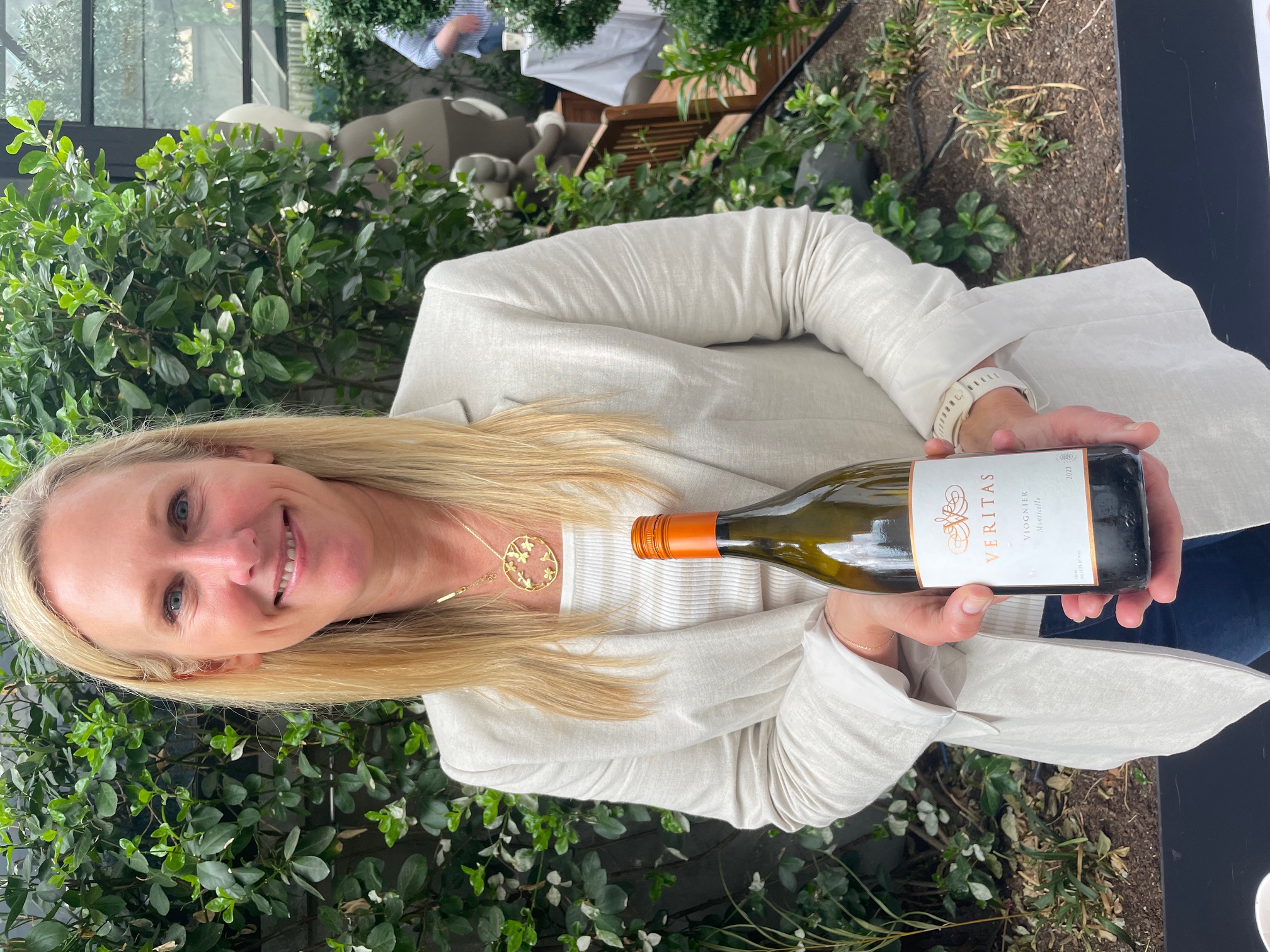 A few days later, at a tasting of Virginia wine, we complimented winemaker Emily Dodson, of Veritas Vineyards and Winery, on her Viognier. We said it seemed lighter on its feet than many, which we sometimes find heavy. That made her smile as she talked about her father, Andrew, who founded the winery with her mother, Patricia.
A few days later, at a tasting of Virginia wine, we complimented winemaker Emily Dodson, of Veritas Vineyards and Winery, on her Viognier. We said it seemed lighter on its feet than many, which we sometimes find heavy. That made her smile as she talked about her father, Andrew, who founded the winery with her mother, Patricia.
(Emily Dodson, of Veritas Vineyards and Winery)
“My dad and I argue all the time about Viognier,” she said. “He feels like unless you’re at 24 Brix or higher, there’s no Viognier expression in the grape. So he feels like in order for it to be Viognier, I have to go high on my sugar, which equals higher alcohol. I consistently pick a little earlier than I think my dad would want me to. And so we argue about it back and forth. He’s like, ‘Oh, Emily, you brought that in too early.’ But I really feel like that’s what brings the freshness to this wine, the fruit bowl, the stone fruit.
“We’re not arguing, but we have differing opinions,” she added, “It’s out of a place of respect.”
Marica Bonomo is responsible for a wine that has brought fame and fortune to her family’s wine business, Monte Del Frà in Custoza in the hills of Lake Garda, not far from Verona. A member of the third generation and a real firebrand, we would soon learn, she had invited us to a tasting of the family’s wines in September in Manhattan. The account she gave of a stunning white wine she calls “my heart, my baby,” Cà del Magro Custoza Superiore, revealed a complicated and sweet relationship with her father, Eligio, now 79. Our guess is that most of us have complicated and sweet relationships with our parents and as we get older -- we and they -- the complicated bits become less complicated. We become more understood and appreciated by each other. So we recently circled back to her.
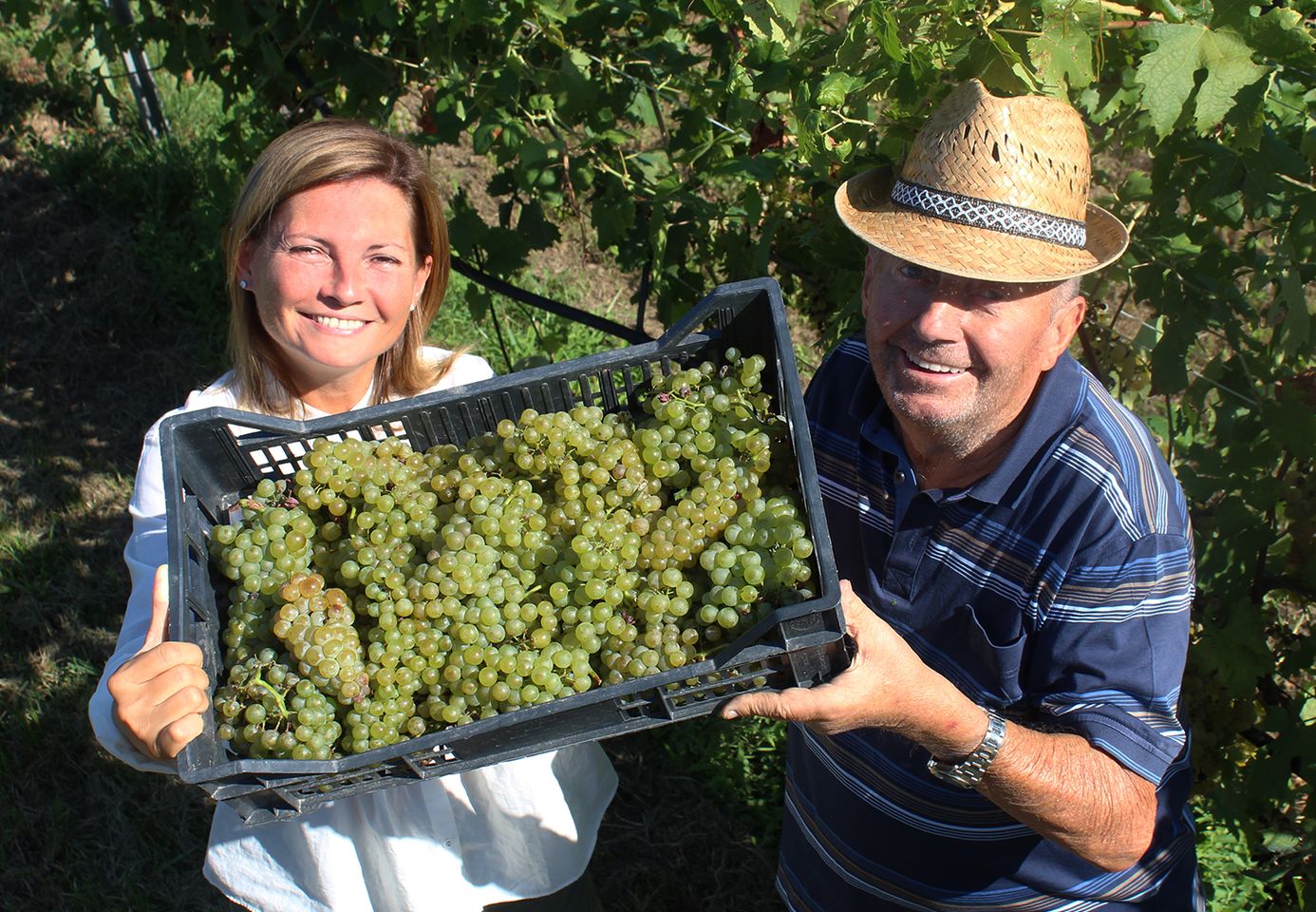
(Marica and her father, Eligio)
Bonomo’s grandfather, Massimo Bonomo, started making wine after renting land in 1958 near what is now his family's winery, Monte del Frà region, named Frà for the friars who grew grapes and made wine in the local monastery in 1492. Massimo grew wheat, peaches, strawberries and grapes and the wine he made was bulk wine. After he died, his sons, Eligio, Marica’s father, and his brother Claudio, her uncle, transformed the business into a proper winery in 1988 with Eligio managing the vineyards and Claudio making the wines. Eligio is something of a firebrand himself, credited with being the first wine producer in the region to buck the region’s traditional vine-training system for one that encourages fewer but better quality grapes. The family’s vineyards are in the main winegrowing regions of Verona -- Valpolicella, Custoza, Bardolino, Soave and Lugana but it is its Cà del Magro Custoza Superiore DOC that it is best known for internationally. The family owns 338 acres and works on 168 more acres that it leases.
Marica is an only child. And while Monte Del Frà is a family business -- aside from her father and uncle, her mother, aunt and cousins have worked there for years — Marica decided to study international law. Her father refused to pay for her to study law, but would have paid had she studied viticulture, she told the group in September. Undeterred, she studied law anyway and was such a standout student that her international law professor wanted her to stay at the university and work with him, she said.
After getting her degree, she started traveling and thinking about how she could work for the family wine business and use her law degree. That didn’t fly with her dad. “My father told me ‘you are smart but not smart enough to do two different types of work at the same time.’ And I respect his approach to life because it means having huge respect for what you are doing,” she told us when we called her.
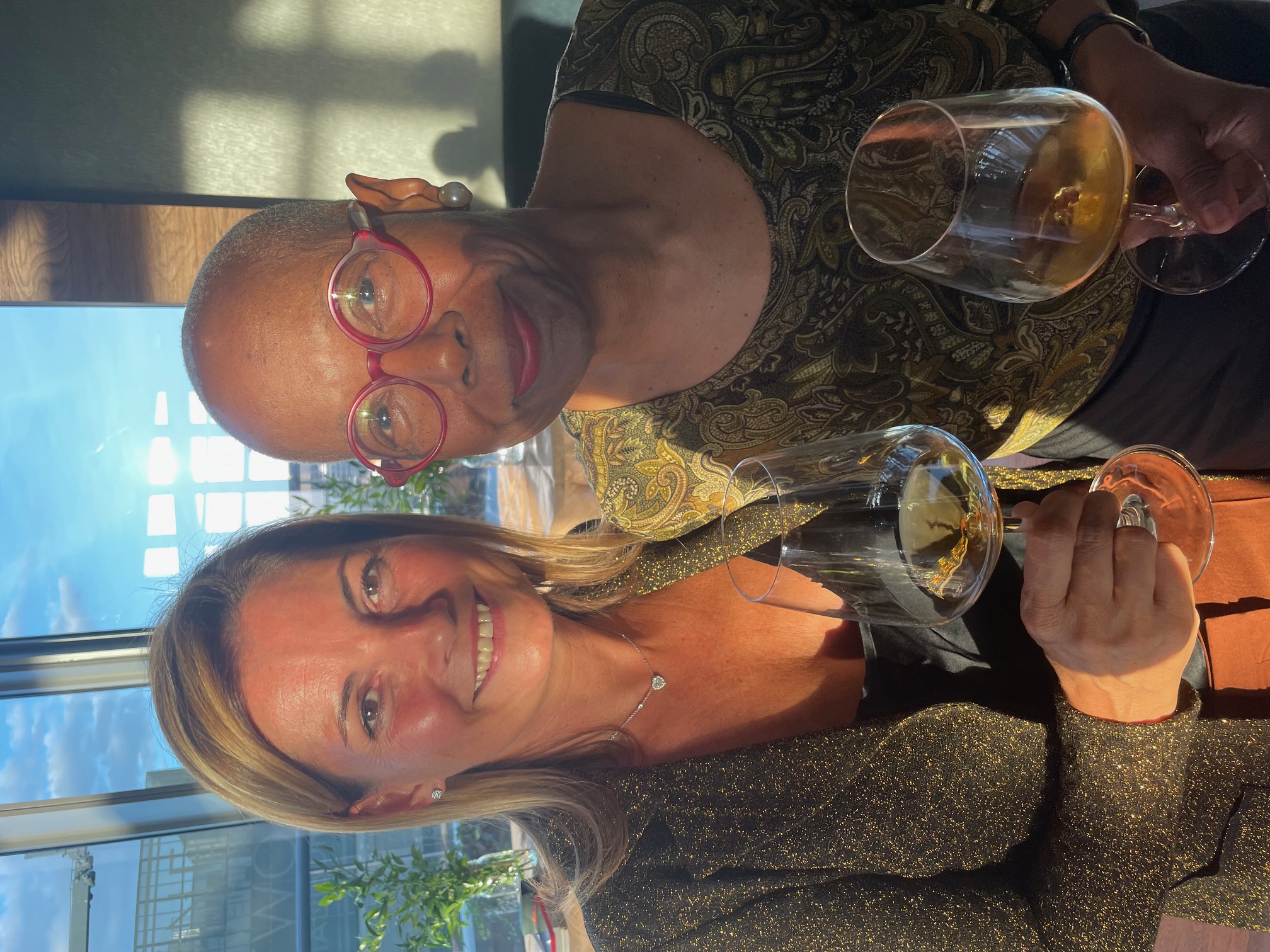 But she learned a lot while traveling and experiencing wines in other countries, as marketing and communications manager for her family’s company. Her family’s white wines, she said, were “fresh, easy to drink and very good, but I asked my father, there are big, complex white wines that I’ve tasted around the world. Why can’t we produce that in our appellation?
But she learned a lot while traveling and experiencing wines in other countries, as marketing and communications manager for her family’s company. Her family’s white wines, she said, were “fresh, easy to drink and very good, but I asked my father, there are big, complex white wines that I’ve tasted around the world. Why can’t we produce that in our appellation?
(Dottie and Marica)
“His first answer was no. The second time was maybe. Then after he had had more time to reflect on it, he studied the vineyard a lot, and finally he said, ‘I think we can study this question more and do better.’”
Cà del Magro Custoza Superiore, a single vineyard wine, is a blend of Garganega, Trebbiana Toscano, Cortese and Incrocio Manzoni. The vineyard, which they consider a cru, is more than 50 years old and the soils are a combination of gravel, calcareous rocks and clay deposited by ancient glaciers, she said. It is in what they call the “heart” of Custoza.
So Marica, her dad and her uncle thought about “more wood exposure, more maceration. More time passed and then we understood that this is a vineyard that needs to talk itself. We have to respect the evolution of the vineyard but not to affect it with wood and other things. It’s a wine that is enriched by the long contact with the skin and of the lees in concrete,” she said. The grapes are vinified separately.
“We put Nature in the glass and leave it for Nature to work with indigenous grapes,” Marica said, adding that the family’s extensive vineyards have received certifications of its sustainable practices. “This is a way to show the character of the vines. It really is something of a language between my uncle and my father and between by uncle and my father and me. There were a lot of meetings with all my family, a lot of tasting before producing because this wine would represent our values, our identity.”
Marica, now CEO and export manager of the company, is 50 and her father relates to her birth, she said, by reflecting on that vintage. “I was born 15 September, so that's the worst time for a daughter when her father is in the winemaking business because you are in the heart of the harvest. My father always remembers that I was born in the heart of the production of the Garganega. I’m very proud to be born in the same day of Garganega because it is the grape of my heart. It’s the grape that permits us to produce the Ca’Del Magro, Custoza Superior.” The average price of this dry wine, which reminded us of orange blossoms, lemon zest, honey, peaches, and almonds, seems to be around $23, a steal.
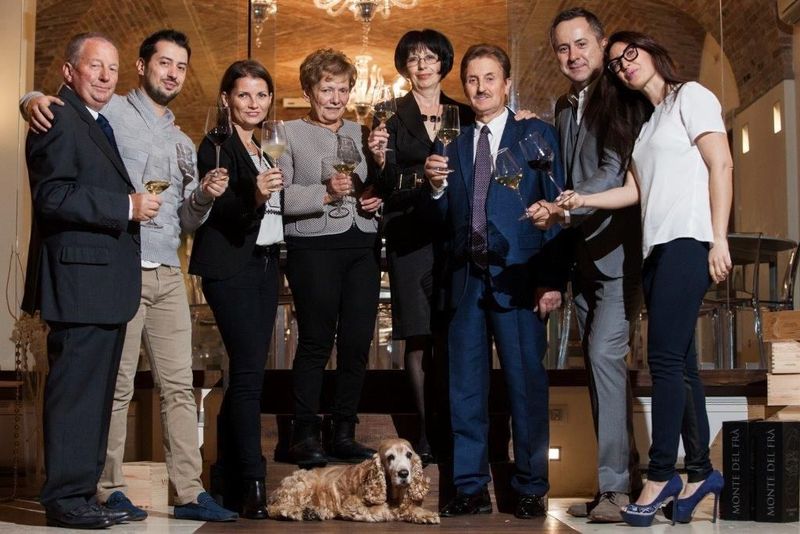 In 2021, when Marica was doing a winemaker’s dinner in Germany, her phone started buzzing insistently. “I started getting a lot of emails. Beep beep. A lot of emails from Asia and the U.S. telling me that our wine, Cà del Magro Custoza Superiore DOC, had made Wine Spectator’s Top 100 Wines of the World in 2021. We were number 59. I feel so happy. I wrote on WhatsUp to my husband and I called my father and there was a silent conversation. Both of us were filled with emotion and not able to talk and it was our biggest conversation.”
In 2021, when Marica was doing a winemaker’s dinner in Germany, her phone started buzzing insistently. “I started getting a lot of emails. Beep beep. A lot of emails from Asia and the U.S. telling me that our wine, Cà del Magro Custoza Superiore DOC, had made Wine Spectator’s Top 100 Wines of the World in 2021. We were number 59. I feel so happy. I wrote on WhatsUp to my husband and I called my father and there was a silent conversation. Both of us were filled with emotion and not able to talk and it was our biggest conversation.”
(Bonomo Family)
When she started with her family’s wine business, “we sold one pallet in Germany. Now we are in 68 countries,” she told us. In addition to the Wine Spectator acknowledgement, Cà del Magro Custoza Superiore DOC has been awarded the prestigious Tre Bicchieri by Gambero Rosso for 12 consecutive years, and earned impressive reviews from other significant critics.
Recalling when she saw her father after learning about the Wine Spectator ranking still makes her choke up. “The next day when I drove home I saw my father and we looked in each other’s eyes and he said, ‘How do we do better now? What is next?’ He taught me, ‘Don’t take a seat but always look higher. Not because you want to be the best but because you want to do what you want to do with love and quality and respect for life.’ It is a privilege to receive his teaching.”
Dorothy J. Gaiter and John Brecher conceived and wrote The Wall Street Journal's wine column, "Tastings," from 1998 to 2010. Dorothy and John have been tasting and studying wine since 1973. In 2020, the University of California at Davis added their papers to the Warren Winiarski Wine Writers Collection in its library, which also includes the work of Hugh Johnson and Jancis Robinson. Dottie has had a distinguished career in journalism as a reporter, editor, columnist and editorial writer at The Miami Herald, The New York Times, and at The Journal. John was Page One Editor of The Journal, City Editor of The Miami Herald and a senior editor at Bloomberg News. They are well-known from their books and many television appearances, especially on Martha Stewart's show, and as the creators of the annual, international "Open That Bottle Night" celebration of wine and friendship. The first bottle they shared was André Cold Duck. They have two daughters.
